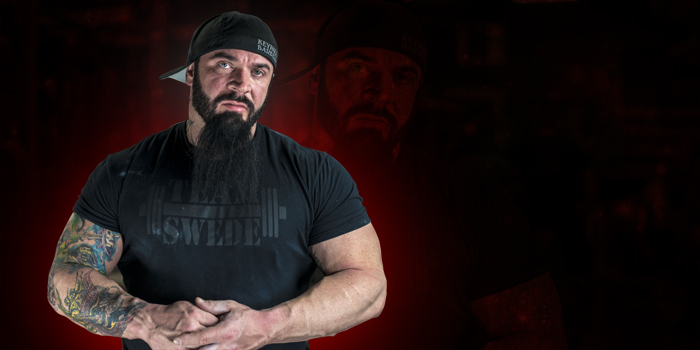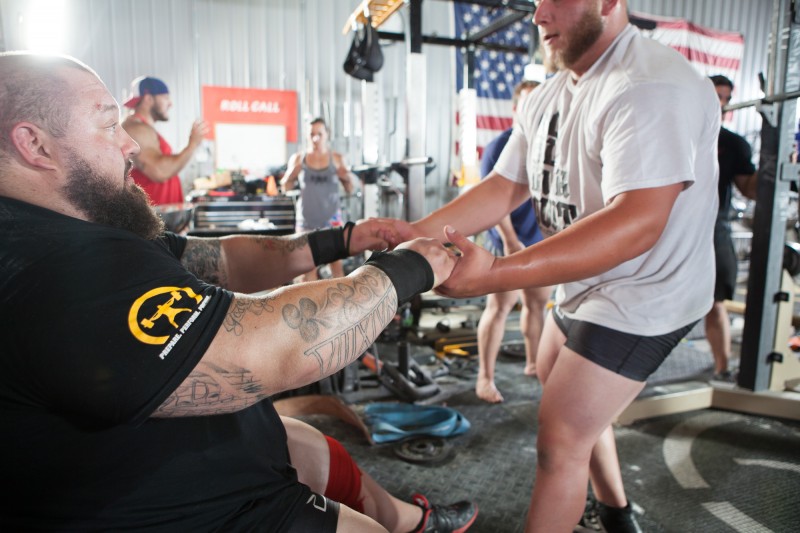
Reason. It's how we form logical conclusions or judgments and generally solve all kinds of problems. Reason is something that separates humans from every other species on the planet. We want to understand the "why" and we want to know if we are able to exert influence on that.
Reason allows for forethought, and forethought allows for planning and preparation, both of which allow us to go further than we've been able in the past.
No other life form seems to have such an intrinsic need, or even any real use, for a complex or deep understanding of the reasons behind the things they experience or observe. Not the way humans do. It's the way we are wired and a huge part of how we've subjugated every living thing around us and bent those things to our own will, and to our own purposes.
RECENT: Sequencing Assistance Work
Humans want to figure things out and more than that. We want to use this information to further increase our sense of control and influence. But really, it is the complexity of our thinking that separates us. It isn't as simple as just understanding cause and effect. On a surface level, even horses understand that concept.
A horse is bothered by flies all day long.
It's hot and the bites hurt. He tries to move around because he understands on a very surface level that the flies are causing him pain and he wants to get away from them and that. But female horseflies will chase and keep on biting if they don't get to feed on enough blood with the first strike. The more the horse moves to try to get away, the more carbon dioxide he exhales. Horseflies are attracted to carbon dioxide, so here come some more. The horse cannot think far enough ahead to outmaneuver the much weaker, thoughtless horseflies. So while he understands that the flies are causing him pain, he's not able to form an effective plan to deal with them.
Enter Human. Lucky for the horse, Human is sympathetic to his plight. Human uses sprays, gels, and ointments on the horse to repel those flies. Human uses fans, strategically placed, to control the air and keep them away. He provides the horse with some solace in the shade, where many types of flies will not follow. Human is quite a few steps ahead of both the horse and the flies. Human has reason and forethought.
If Human were to wander into the Okavango Delta, a lush wetland near the Kalahari desert in Southern Africa, the lions he'd see in that area are the largest in the world. Truly fantastical creatures and magnificent killing machines, but they don't think too far beyond their next meal.
Approaching one in an attempt to explain that he is, in fact, a member of the dominant species of the planet would show a striking lack of forethought and all but ensure him becoming that next meal the loin had been laying around thinking about all day. But Human has run into this problem before. He recognized that these beasts were physically superior predators and, by thinking a few steps ahead, he was able to come up with ways and means to avoid getting eaten. Eventually, he developed weapons that made him more dangerous than the lions. Still, the few that remain are sprawled out in the shade, thinking about lunch and not much beyond that. They function on instinct and in very simple, usually single-step thought processes.
Marc Hauser, director of the cognitive evolution lab at Harvard University, is quoted as saying, "mounting evidence indicates that, in contrast to Darwin's theory of a continuity of mind between humans and other species, a profound gap separates our intellect from the animal kind."
In other words, we aren't just the most intellectually evolved version of our evolutionary predecessors, we are in a class of intellect all our own. We possess a good deal of capacities which support this line of reason, not the least of which is the fact that we are the only species able to identify — wait for it — a line of reason.
As humans, we have used reason and forethought to develop societies and civilization. We specialize and dedicate our individual efforts to specific fields. This has allowed progress on a scale which would have been impossible otherwise.
I am a powerlifting coach. My job is to consistently control variables in a way that will eventually result in the most favorable outcome for my lifters, considering longevity and performance in competition. So, I use logic and reason to predict and plan as many steps ahead as possible. A lot of people in my line of work don't operate in this manner. In fact, there are a good deal who think more like horses than humans. Something hurts? React to it.

There is no complex forethought, just very simple, single-step thought processes like the lion.
Coach:
"Here's your workout for next week. Do more weight than you did last week and pick a different movement. We will have you go really heavy, because if you train heavy enough, you'll get stronger."
Lifter:
"But Coach, I have tendinitis and can barely bend my arms, because we've been training like this for six months. How am I supposed to keep training this heavy?"
Coach:
"Sounds like we need to pick a variation that's easier on your elbows."
Lifter:
"Fuck this, I'm running 5thSet."
At least, that's how I like to envision those interactions ending. Now, for "coaches" who are essentially programmers, I'm sure this next part will be hard to read.
The reality of it is this: one aspect of coaching is identifying the needs of an individual lifter. That much is undeniable.
This can look like identifying what phase of training the lifter should be starting in relation to competition (when selecting programming), identifying a weakness (most of which will come out in the wash when the lifter begins to use a balanced program with activation work before each session anyway) or, by far the most important individual difference, identifying technique issues which do not maximize the lifter's potential considering that lifter's unique physicality or which put the lifter at an unacceptable risk for injury.
But when it comes to customizing and entirely reworking programs on a daily or weekly basis, based on some type of feedback, and citing "individual differences" as the reasoning behind the need for it, I think that's a bit of a stretch. This type of scheme is great for client retention because the lifter has no idea what to do next and so he must continue to pay the programmer, but it's counterproductive to the lifter's progress more times than not.
It's short-sighted and if changes need to be made on that scale, on a daily or weekly timeline, that's more likely evidence of the "coach" being inept than it is of the client getting really-extra-super-duper-good service. Remember, Human thinks further ahead than the horse. It's alright for the lifter to function as the lion or the horse in this context, but the coach has to be the human here.
If a coach has a good handle on concepts like specificity, volume loading, fatigue accumulation, the neural consequences of that fatigue being accumulated, the longterm delay training effect, and most of all, the fact that what a lifter is capable of doing within a session and what a lifter needs to do within a session to improve (these are separate cities with a valley between them) then, it becomes fairly easy to lay out a plan. It's a plan with a narrow margin for error, which is safe and effective on a timeline of months, not days or weeks.
I realize powerlifters are all lions, beasts, and savages, but let's not lose sight of the forethought and reason which have set us above every other living thing on the planet, simply because we choose to lift weights. Let's go with a plan that respects the big picture and not just the next meal.












2 Comments